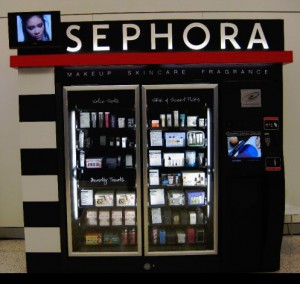Our last class of Marketing (boohoo) was on ethical/unethical marketing. What inspired me to look more into unethical marketing towards children was from reading Lauren’s blog!
According to Lauren’s blog, it’s all about the toy, who cares about food’s nutrition? Only their parents. If it’s all about the toy, the idea of toy guns marketing to children could be unethical. Like what Elaine said, it’s a gray area, and I agree because it all depends on how you look at the marketing’s intention. In my opinion, I find there are number of toys that could be unethical towards children. For example toy guns for boys and make-up dolls for girls. Because there is no right and wrong answer, I believe what commercials are advertising to children tends to stick into the children’s mind and influence their behaviour. Could toy guns have an affect of violent behaviour towards boys? If I were to do research on this correlation then I would be able to find out the answer, but it’s marketing we are talking about. What I’m trying to get here, is that I was one of the fallen victims of playing with Barbies. I remember playing Barbie dolls with my best friend was about driving the hot pink convertible car, dressing up extravagant matching outfits, had a good looking male friend (Ken), and applying makeup to look pretty. As a child, I thought applying make up was the way to look pretty, until my mom told me make up is not healthy. If you follow make up trends, even MAC has a Barbie line (you see what I mean?)
 <http://www.gizmodiva.com/entry_images/0307/29/Barbie_Loves_Mac_make_1.jpg>
<http://www.gizmodiva.com/entry_images/0307/29/Barbie_Loves_Mac_make_1.jpg>
These are the subconscious aspects of marketing that affect a children’s behaviour and thoughts. Although the toys are fun to play with, I recognize that advertising to children is easy. With the right strategies in TV commercials such as colour, recognizable people or cartoons, music, and function of the toy has a powerful effect on children.











